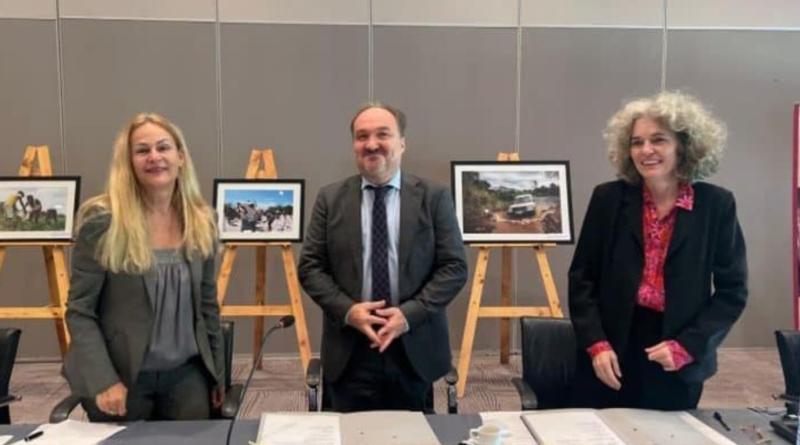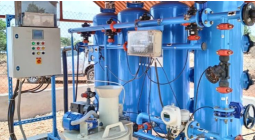MOZAMBIQUE: drinking water system to be extended in Montepuez with €10M from AFD

In order to improve the drinking water supply in Montepuez, a town in Mozambique's Cabo Delgado province, the government has launched the Drinking Water System Rehabilitation and Extension project, the second phase of which will be launched shortly. The project has just received €10 million in funding from the French Development Agency (AFD).
French Development Agency (AFD) will be supporting the implementation of the second phase of the project to rehabilitate and extend the Montepuez drinking water supply system in Mozambique. The financial institution has just signed a €10 million financing agreement with the International Committee of the Red Cross (ICRC), which is developing the water project with the Investment and Assets Fund for Water Supply (FIPAG), the national urban water operator in Mozambique.
Following a first phase of works which extended the Montepuez drinking water network to an additional 25,000 people between 2021 and 2023, notably through the construction of infrastructure for the production, transport, storage and distribution of drinking water, this second phase of the project “will improve access to drinking water for 120,000 Montepuez residents by 2026”, according to AFD.
A positive impact on people’s health
And by 2040, the rehabilitated drinking water supply system should cover the drinking water needs of some 210,000 people in Montepuez, where many people have settled after fleeing the violence in the northern regions of Mozambique. This population represents an additional strain on fragile essential services, in particular access to water and health services.
With the completion of the project to rehabilitate and extend the Montepuez drinking water supply system, “residents will have access to clean, affordable drinking water. This will lay the foundations for long-term urban development, directly improving the health, economy and protection of the population”, states the description of the water project, published in 2022 by the International Committee of the Red Cross. Before the project was launched, barely 8% of the population received water through the Montepuez urban supply system, which was characterised by obsolete infrastructure inadequate to meet demand.





